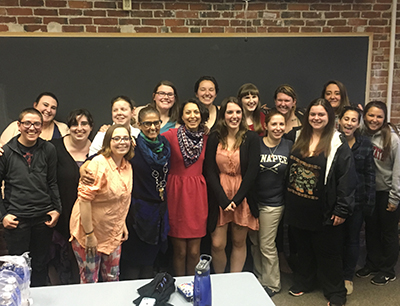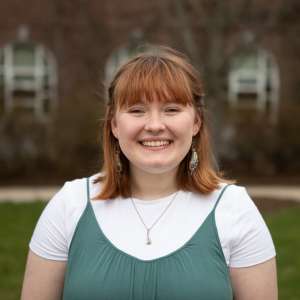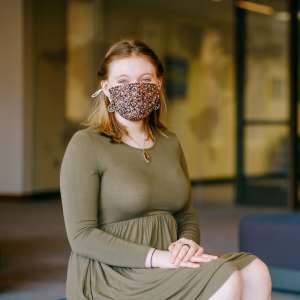Documenting Diaries of Local Women Farmers

Students in Keene State College’s women’s and gender studies program are helping people learn more about the life and plight of local women farmers at the turn of the 20th century.
Partnering with the Historical Society of Cheshire County, the students took part in a senior capstone project during the spring semester, transcribing the diaries of Adeline “Addie” Noyes and her sister Persis “Maria” Noyes as well as a series letters that Keene native Mary Carpenter sent home while serving as a nurse in Washington, DC.
Contract Lecturer Dr. Emek Ergun, who taught the capstone class, learned about the project from Jenna Carroll, the director of education at the Historical Society of Cheshire County. “In the capstone class, we talked about women’s history and how particularly difficult it is to write because women don’t leave many documents behind,” said Ergun. “These documents provide real stories about real women.”
Transcribing is tedious work. Like the farmers, the students rolled up their sleeves and spent many hours trying to decipher the cursive-written diaries and letters. “Since I’m from the area, I think it was very important to understand what was going on locally,” said Natalie Haley, a senior women’s and gender studies major from Stoddard, New Hampshire. “I really got a feel for their lives.”
A senior psychology major from New Fairfield, Connecticut, who is minoring in women’s and gender studies, Paige Marion said she enjoyed looking at documents from a feminist perspective. “It was like putting on a new pair of glasses and seeing it in a different light,” she said. “I really found it interesting.”
Working on the Carpenter letters, Marion noted several differences between the past and the present. Because home mailboxes didn’t exist, mail was addressed simply to Keene, NH. She also pointed out that banks at the time weren’t able to transfer funds without a letter of consent. “I guess they didn’t have ATMs back then,” said Marion with a laugh.
“The main point of the capstone project (which included 200 pages of transcription) was to have students realize the importance of the work and being part of community of feminist researchers,” said Ergun. “You don’t have to be a researcher; you can just volunteer and contribute to the building of that history.”
Promoting the project at the Historical Society, Carroll said they would like to archive the diaries and letters and make them available to a broader audience by posting them online and taking them to local schools.





